Farzad originally took up biology to work on becoming a medical doctor. Upon realizing that it wasn’t what he wanted, he shifted to major in business and follow his passion.
He then met Visme founder Payman Taei who, at the time, was looking for someone to help with their marketing:
“I was starting out as an unpaid intern and then it turned out to be a fruitful collaboration. I was gradually promoted to taking over the marketing initiative and became director of marketing at Visme.”
During his time at Visme, Farzad worked on their customer acquisition strategy. Because paid ads and cold sales outreach weren’t effective, they decided to focus on their inbound marketing:
“We figured that if customers are looking for solutions like Visme, they’re already looking for it online. What if we start showing up in places where they’re looking instead of us having to go chase after every customer?”
They put out content pieces and built more pages, but they eventually realized that it required other things if they wanted to rank:
“What moved the needle for us was our off-page promotion tactics and collaborating with other websites to mention us.”
This realization sparked the idea for Respona, which was originally an internal platform that they developed to help Visme’s domain to rank.
Web traffic is a vanity metric
Having tons of site traffic is amazing but Farzad says that this should be taken with a grain of salt:
“The industry Visme is in is a high traffic one. So there’s lots of terms and keywords that get lots of volume. What matters to us is really the search intent.
There are a lot of sites that get a fraction of the traffic that we’re getting but they’re driving the same if not more revenue from their smaller traffic.”
While it’s a vanity metric, traffic could give users an idea of your site’s authority:
“If Google’s prioritizing you for a lot of these high traffic keywords, normally it’s an indication that it must be a good website. But again, different industries have different traffic levels.”
At the end of the day, it’s conversions that matter:
“What matters to us is signups and conversions. So filling the top of the funnel with just irrelevant traffic isn’t gonna get us anywhere.”
Conversion points
How you convert the site traffic, Farzad says, depends on the page. But for Visme, they based it on the three segments in their whole buyer journey:
Informational content
“Top of funnel are mostly informational keywords. So you think of certain blog posts like, ‘How Do I Make a Presentation?’ These are stuff for folks that are not necessarily looking to purchase the software, but it’s still relevant.”
The CTA for this segment are:
- Take our courses (Visme)
- Download the outreach strategy cheat sheet (Respona)
Farzad shares that while they don’t necessarily convert a lot of the emails, their brand becomes top of mind:
“So the next time they’re actually looking to create a presentation or look for an outreach software, we’d be something that they’ll actually go and search for.”
Pamphlet pages
During the consideration stage, the user is about to take some action. For Visme, they do this through their presentation templates while Respona has their link building outreach templates.
“They’re looking for something that’s not necessarily branded, but that they could consider to purchase, if that’s something that would be interesting. So we have lots of pamphlet pages that worked really well, especially on the Visme side because it’s a more design-heavy website.”
Landing pages
For their landing pages, they try to track all the single steps that visitors have taken:
“Depending on the intent, when the user actually lands on that page, what are they trying to do? We’re trying to get them to get their answer as quickly as possible. We’re not necessarily trying to squeeze every single sale out of every single person who lands on our website.”
How to help your landing pages rank
Landing pages don’t usually drive traffic. So in order to help them rank, you have to work on your site structure.
It usually starts with taking a look at the buyer journey, seeing which keywords are relevant to each stage, and creating content based on them.
Landing pages are created based on intent, using parent keywords that are usually highly competitive. So in order to keep up with the competition, you have to build content pieces to become an authority on the topic.
Visme and Respona do this through their three pillars of content:
SEO content
“These are normally higher volume keywords that have lower competition. So these higher volume informational keywords just basically bring traffic to the site.”
Link magnet content
“These are your original research, surveys you’ve done, stuff that is built to take traffic to your site. It’s basically an excuse for you to reach out to other publications and other relevant resources to get links from.”
Bottom of funnel content
These could be in the form of your templates and X tool alternative pages.
“So we have three pillars of content. All of these pages that are going to be created have an internal link to that one landing page.”
Start building backlinks
But the problem is, everyone’s doing this for their site structure, thinking that this is the end goal.
The next step is to build links for your domain. And while this doesn’t happen overnight, you’ll reap the benefits in the long term:
“Over time, you’re basically indicating to Google that you’re an authoritative resource on the topic. You have a landing page for it and it’s supported by so much content that it increases your chances of actually getting up in the search results pages.
So a majority of our signups actually come from our landing pages that are ranked for our bottom of the funnel keywords. But the majority of our efforts are concentrated on building those supporting materials that then get outreached and promoted.”
Be a guest on relevant podcasts
When it comes to content, it involves 20% creation and 80% promotion (some would even argue that it should be 50-50%).
But how exactly do you get your stuff out there?
One of Farzad’s go-to promotion strategies is speaking on podcasts. To narrow down their list of shows to pitch to, they look at:
- Relevance to the industry they are in
- Hosted by someone who has established a reputation in the industry (i.e. recently mentioned and interviewed on other podcasts)
“Then we go and actually take a look at the podcast and their episodes to see if that’s the type of podcast that we can add value to.”
This strategy is a win-win situation because both parties add and receive value from the collaboration:
“Finding relevant podcasts you can add value to is a win for the podcast shows. It’s a win for us because folks that are listening to the show are hearing about Respona and are also taking something from the episode.”
But adding value to other publications and podcast shows isn’t a one-off thing. Rather, it should be done consistently over time.
In fact, Farzad says he’s been in one podcast every week since 2022. This has helped Respona build its domain authority on the search engines:
“When the show notes mentions and links back to Respona, that sends a signal to the search engines that our site must be an authoritative resource. And the next time we create a piece of content or landing page, we have much more authority to back us and get us up in the search results.”
Getting backlinks and landing guest posts
Other ways to promote your content are to get backlinks through collaboration and landing guest posts on other sites.
A better way to do link exchanges
Unfortunately, link building has earned a negative connotation because of spam and shady requests. However, there’s a better way to do it.
Respona’s four-step process has given them a 10% success rate:
Step 1. Find the relevant person in charge of content marketing or SEO
Step 2. Find their email address
Step 3. Put a face to your name by adding them on LinkedIn. Do this before you send your outreach email.
Step 4. Send the outreach email
How to land a guest post
After completing the transactional ABC link collaboration, they then deepen the partnership by offering to write a guest post:
“For example, that could be a guide on SaaS marketing. So then we reach out and say, ‘Thank you so much for collaborating with us. By the way, I was looking around at Ahrefs and noticed a couple of your competitors, like X and Y, are ranking for the keyword SaaS marketing. We’ve actually been in the marketing space for quite some time, and I would love to contribute an article to your site that covers it.’
There’s no catch. You don’t have to accept it if you didn’t like the content, but would love to give it our stop and see what you think.”
Farzad says guest posts should only be pitched after a successful transaction:
“It’s always a second touch point after a successful collaboration. And we pitch you with something that you can’t say no to because there’s no catch. We’ve done the competitive analysis and we know exactly what your site would need.
About 50% of the time they say no. They may still not be convinced and that’s fine because we’re dealing with a game of numbers. So half of them say yes and then we have a successful collaboration down with this site.”
Never pay for links
You only want relevant and good reputation sites to build links with, which is why you should never pay for them:
“That’s a big red flag for us because if somebody’s accepting payments from you, they’re accepting payments from everyone.”
The listicle strategy
Getting included in listicles is also a great way to boost your domain rating. You can start by looking at relevant listicles that mention some of your competitors but failed to include you:
“It’s a game of reaching out and seeing what those blogs value. Some of them value affiliate commissions so if you have an affiliate program, you can invite them to join yours.
Others value backlinks so we can give them a link from another guest post that we’re writing or another content piece that we are collaborating on.”
By reaching out consistently, Farzad says that it could lead to an organic mention:
“As you get more of these mentions, the next time another site’s writing content, if you’re mentioned on five or six of these tool pages, they would organically mention you.
So we actually get more organic listicle mentions now than we get through outreach because we kind of sparked that ourselves by reaching out to these bloggers.”
Final advice
Do start reaching out as early as you can.
“Start today if you want to get any results. The first few months are going to be terrible. Experiment, iterate, talk to people, figure out what motivates them and offer them that.”
Don’t pay for backlinks.
“You’re going to get links from sites that won’t help you in the long run.”
Thanks for listening! If you found the episode useful, please spread the word on Twitter mentioning @userlist, or leave us a review on iTunes.

